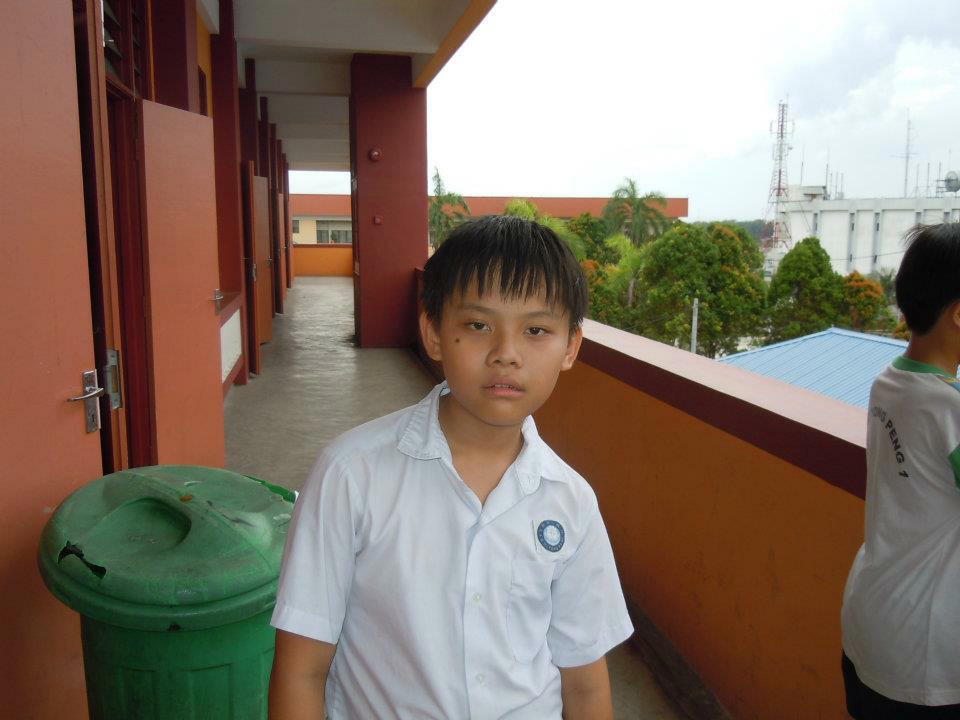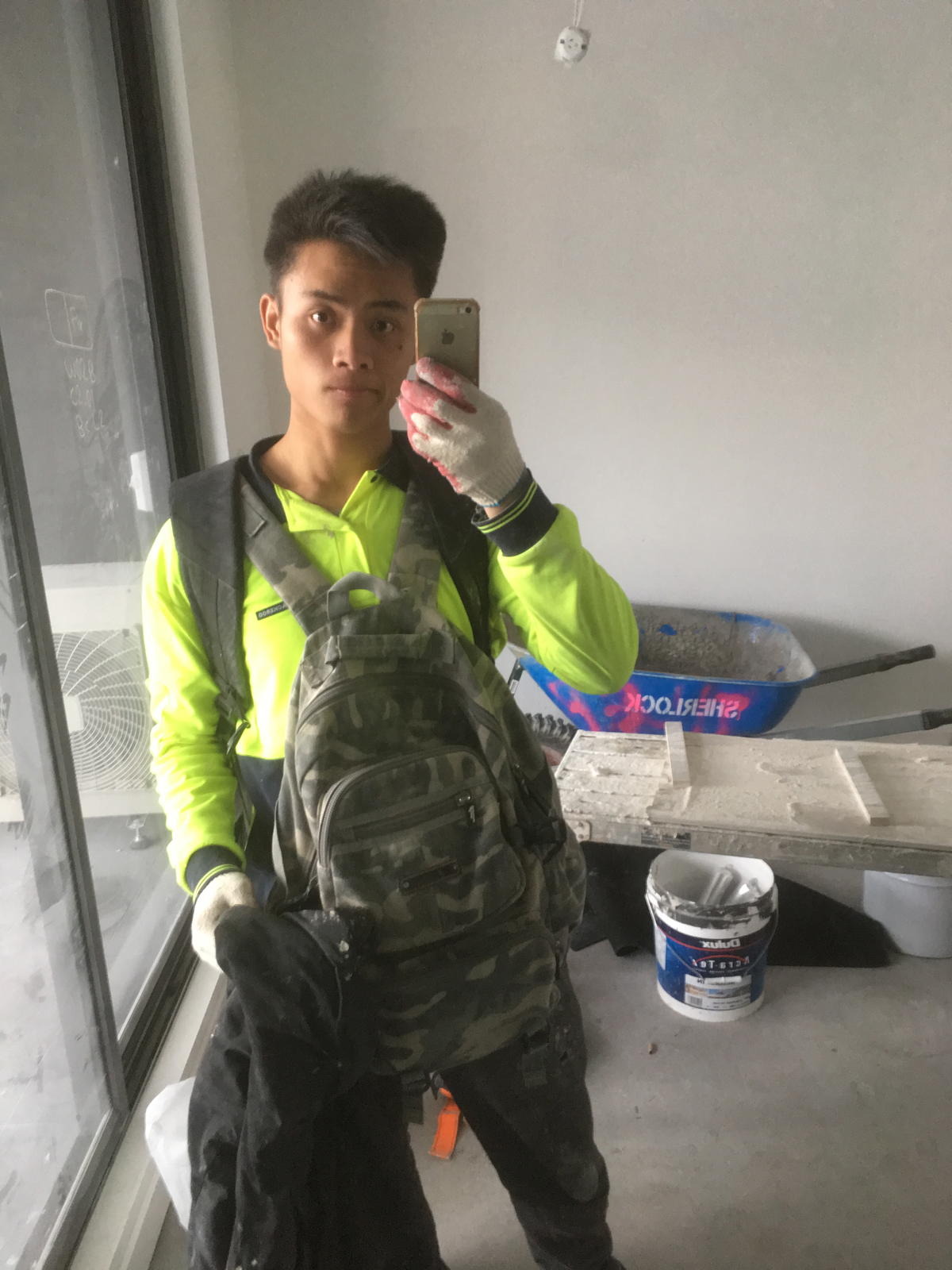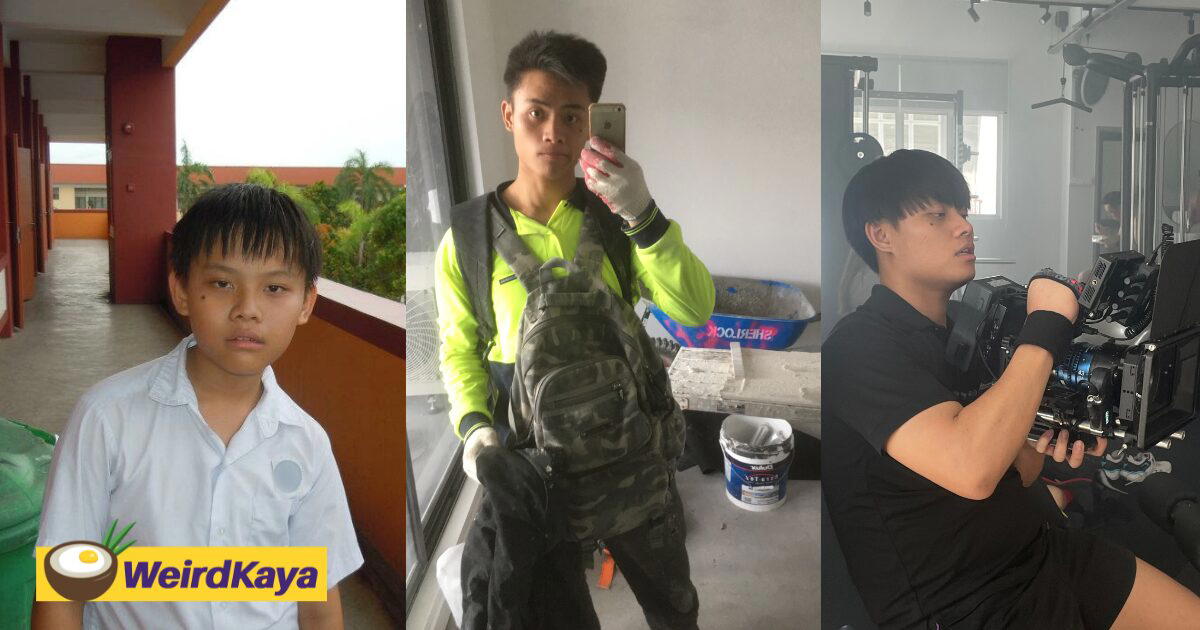Exclusive Story by WeirdKaya- Proper accreditation to WeirdKaya and consent from the interviewee are required.
When Desmond was a five-year-old in kindergarten, his family thought the sudden twitches in his eyes and hands were nothing more than a bad habit.
Teachers told him to “control it”, while relatives reminded him to “behave”.
He had no words for what was happening inside his body. All he knew was that every time he twitched, someone would ask him to stop.
“I did not know it was Tourette syndrome. I only knew everyone wanted me to change,” he said quietly of the small, heavy shadow which was planted in him and would linger for the next 20 years.
A diagnosis that came too late
Desmond discovered the name for his condition while he was in primary school after seeing a singer perform live on TV before exhibiting uncontrolled movements backstage.
Curious, he did an online search it and found a word that matched every symptom he had lived with since childhood — Tourette syndrome.

I told my aunty. She did not take it seriously. No one did. My parents were busy working in Singapore and I didn’t want to burden them.
“For years, there was no medication or formal treatment available. My parents brought me to see traditional Chinese doctors, but it was all in vain,” he recounted.
Growing up different and alone
Desmond still remembers one art lesson where everyone gathered around a table discussing their final project during his high school days.
Out of nowhere, one classmate imitated his tic loudly and the burst into laughter. But for Desmond, it was moment filled with anger and shame.
“It wasn’t even meant to hurt me. They thought it was funny. But the person who suffered was me. I had zero confidence and people bullied me easily.
“I simply wiped my tears away and kept quiet. There was no one to defend me: not even my teachers, friends, or myself.”
Even though that same classmate apologised to Desmond for the joke years later, it was too late as the wound had already appeared.
With no confidence and support, Desmond retreated into online gaming as it was safe space for him to be himself without being mocked over his tics. However, the loneliness continued to linger.
Amidst the pain, he found a passion in shooting videos and filmmaking at the age of 15 but was met with widespread skepticism.
“Nobody around me believed making videos could be a real career as they believed it wasn’t a job that earned tons of money. Nevertheless, I refused to let the dream die,” he said.

Sent overseas without a plan
For most people, going overseas is often seen as a chance of a lifetime to explore the world or further their studies.
But for Desmond, that wasn’t the case at all when he first arrived in Australia at the age of 19. It was because his parents wanted a better life for him — one that was beyond what they themselves ever had.

“They told me to focus on my studies. But living with cousins who worked long, hard hours in renovation, I found myself slowly falling into the “hustling” culture.
“Seeing how everyone around me was hustling while I stayed at home made me realise that I needed to earn my own money, especially because I wanted to help my parents.”
With little to no work experience and English proficiency, Desmond entered the workforce and was determined to forge his own path.
Unfortunately, the Covid-19 pandemic hit and he found himself stuck in Australia for several years as he juggled between work and his studies to survive.
Was on the job for only a day
Desmond’s first job saw him being sent to a construction site and spending the entire day wiping bricks and cleaning floors until his back hurt.

A worker later asked him whether he needed water for his throat after noticing his tics. Not wanting to reveal his real condition, Desmond put on a smile and declined the offer before returning to work.
But little did he know that it would ultimately mark the end of his working experience in Australia.
At the end of the shift, the boss told me not to return to work anymore. Although his wife tried to convince him to do otherwise, he refused.
“I think it was caused by both my work abilities (or lack of it) and my tics. I could feel they weren’t comfortable,” he said.
Desmond added that even before he headed for Australia, he had already experienced judgement from others back home.

“When I was 17, I worked part-time at a food court. I remember I was scooping nasi lemak into bowls when my tics suddenly appeared.
“A customer started shouting at me and scolded me for “moving weirdly”. It left me wondering whether my condition would ruin the shop’s reputation. I was also worried that my tics will worsen when I get older.”
However, it wasn’t all gloom and doom for Desmond as he also recounted a single instance of kindness that left a lasting impact on him.
“A Taiwanese man once approached me after noticing my tics. Instead of avoiding me or passing judgement, he simply said, “I know this condition. I know it’s not easy. It must have been tough for you.”
That one sentence… it was enough. It made me feel seen. And it was the turning point that helped me accept myself a bit more.”
Learning to live with Tourette
Despite losing his first job so quickly, Desmond didn’t give up and found another one while continuing his studies.
At the same time, he never lost his love for filming and eventually completed his studies in film production upon returning to Malaysia after the pandemic subsided.
Desmond kickstarted his filming journey as a freelancer, thinking it would be difficult due to the unstable income. But despite the challenges, he managed to find his footing and hit a five-digit income within his first year.
People started noticing my work. I felt that perhaps, I really can do this. But building a career with Tourette syndrome came with its own battles.
“Whenever I spend hours editing videos, my tics would cause me to strike the mouse way harder than intended until the skin on my fingers peeled off.
“As for audio recordings, I have to hold my breath to prevent vocal tics from being picked up by the microphone.”
Despite the challenges, Desmond said one of his proudest milestones was in the form of a Father’s Day short film he produced for a friend’s wholesale shop.
“It was the first project I led with my own small team. The pay wasn’t high, but the pride I felt was priceless.”

‘You’re not broken’
When asked what he would say to those who suffer from Tourette syndrome and struggle with fully accepting themselves, Desmond had this to say:
If you think you are weird or broken, you are not. Your family might not understand. People might tell you to stop. If nothing works, then work on yourself.
“Improve yourself. Become so good until your confidence shines and covers all the parts you feel insecure about.”

Exclusive Story by WeirdKaya – If you wish to reproduce this story, please ensure that you obtain consent from the interviewee to maintain factual accuracy and avoid the potential spread of misleading information.
If referencing or using any information from our story, we kindly ask that proper credit is given, along with a backlink to WeirdKaya, as acknowledgment of the efforts made by our editors in sourcing and conducting interviews.



